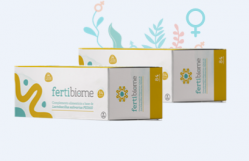Trials continue to support benefits of novel probiotics for fertility and premature babies

Joined under parent company Zendal Group, the companies put forth the updated research to continue to demonstrate the efficacy of their probiotic solutions for the modulation of microbiota to address specific pathologies.
Fertibiome for fertility
Fertibiome, currently available in Spain, Portugal and Italy, is marketed as “the first oral probiotic with the capacity to modify the microbiota of the uterus” to increase the chances of a successful pregnancy.
“The intake of Fertibiome for three to six months exerts a strong effect on the bacterial composition of the female and male urogenital tract and the immune status of couples with infertility caused by bacterial dysbiosis, thus increasing the chances of pregnancy success in 40% of the cases,” the companies shared in statement.
A study published in the American Journal of Reproductive Immunology supports Fertibiome claims, showing that Ligilactobacillus salivarius PS11610 exerts an effect on the microbial and immunological profile of couples suffering unexplained infertility.
The trial, conducted in collaboration with the Department of Gynecology and Obstetrics of the Hospital Universitario de La Paz in Madrid, administered the probiotic over a six-month test period to 17 couples undergoing assisted reproductive treatments.
“Supplementation with L. salivarius PS11610 significantly modified the urogenital microbiome composition in male and female samples, solving dysbiosis of 67% of the couples,” the study found, noting an elimination of pathogens and increase in Lactobacilli in samples.
“Moreover, L. salivarius PS11610 changed the uterine microbiome that could be associated with a change of the uterine immune profile. Additionally, the probiotic intake could be associated with the observed change in the systemic immunological profile of couples.”
Neobiome for gut health in premature babies
The companies also provide evidence published in the Journal of Pediatric Gastroenterology and Nutrition that Neobiome, a new probiotic strain combination, improves gut bacterial colonisation of preterm infants.
“Neobiome has increased colonisation by Lactobacilli and Bifidobacteria in the intestine of premature infants, favouring the development of the immune system to deal with the presence of pathogens and reduce the clinical complications they suffer during their hospital stay,” the companies stated.
“Besides the correction of dysbiosis the reduction of clinical complications such as infections and the reduction of the length of stay in the hospital are key findings from study.”
The Department of Neonatology of the University Hospital of La Paz in Madrid and the Department of Pediatrics of the Autonomous University of Madrid collaborated in the randomized, double-blind, placebo-controlled clinical trial, which compared the effects of probiotics and a placebo on 37 preterm infants from 28 weeks to 30 weeks and six days of gestation.
The research team determined that supplementation “enhanced an earlier colonisation of Lactobacillus and Bifidobacterium in preterm infants' guts in five and one week respectively.”
Neobiome has been authorised and registered as Nutrition (AESAN) and has not yet arrived to market. European patent applications have been filed for both products.








